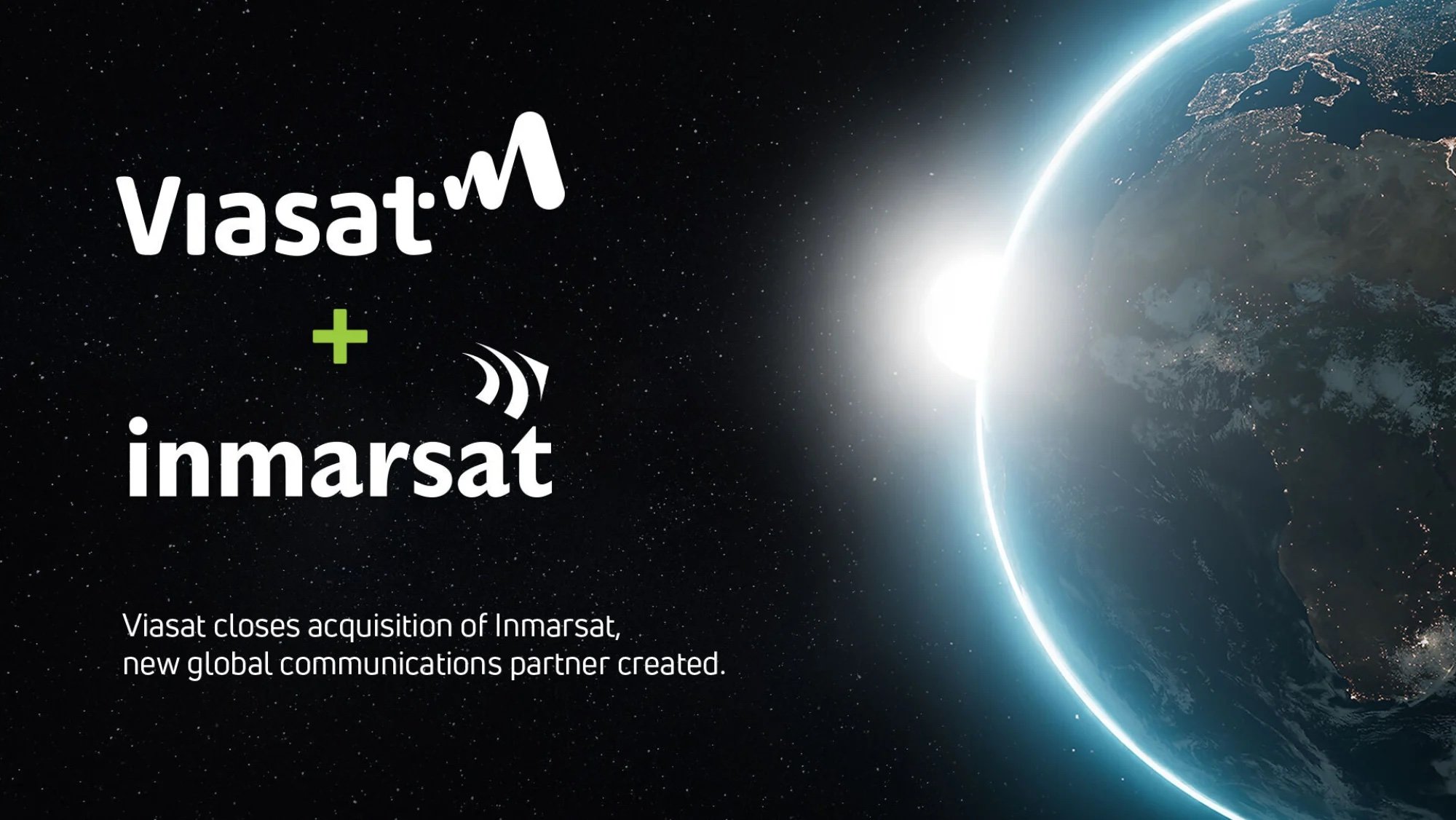
Viasat has successfully completed its acquisition of London-based Inmarsat, just a week after the Federal Communications Commission (FCC) dismissed a competition complaint filed by SpaceX.
The significant merger brings together two organisations with complementary technology assets, resources, and capabilities, creating a global communications provider with an expanded portfolio of services.
Mark Dankberg, Chairman and CEO of Viasat, said:
“We are thrilled to welcome Inmarsat’s employees, customers, shareholders and partners into the Viasat ecosystem.
The combination of our companies brings together the people, technology, innovation, network assets, spectrum resources and global partnerships needed to help connect the world more affordably, securely and reliably.
Together, we believe we are positioned to offer customers a multi-layered network that gives them the right connectivity at the right time, place, and price.”
Viasat is known for providing in-flight connectivity for Wi-Fi on commercial aircraft, as well as fixed broadband services in the United States. The company also serves commercial networks and government and defense systems.
Inmarsat, on the other hand, has strong distribution channels in the mobility, government, IoT, and enterprise sectors.
By combining their strengths, Viasat aims to broaden its global fixed and mobile service offerings to customers.
The merger between Viasat and Inmarsat results in a combined fleet of 19 satellites in space, covering various frequency bands, including Ka-, L-, and S-bands. Additionally, the newly formed company will have approximately 8,000 employees.
Viasat sees the acquisition as a way to generate positive free cash flow and capitalise on the potential growth in the L-band and IoT service markets.
One area of particular interest for Viasat is the emerging direct-to-device market. Inmarsat’s portfolio of global L-band spectrum and space resources could provide the necessary assets to support this market and enable the company to tap into the multi-orbit, 5G mobile market. This move aligns with industry predictions that satellite communications will play a significant role in the growth of 5G connectivity.
As the integration process unfolds, the new organisational structure and leadership team will be determined within the first 100 days following the merger.
Mark Dankberg will continue to serve as chairman and CEO of the combined company, alongside Guru Gowrappan as president. Rajeev Suri, CEO of Inmarsat, and Andy Sukawaty, Inmarsat chairman, will join Viasat’s board of directors. The company also re-confirmed its global headquarters will be in London.
George Freeman MP, the UK’s Minister of State at the Department of Science, Innovation & Technology, commented:
“Satellite communications is a hugely significant and strategic global market for the UK space sector, now poised for an exciting next phase.
The combination of Viasat and Inmarsat creates a global leader in satellite communications here in the UK. It brings significant investment, hundreds of new highly skilled jobs and will serve as a catalyst for substantial economic growth.
Having met both companies, I look forward to working with them as we use the UK’s regulatory freedom and leadership to support advanced technologies to boost the space economy’s productivity, profitability, and sustainability.”
The completion of the Viasat-Inmarsat deal follows a lengthy battle for acquisition rights that lasted over 18 months. The deal faced regulatory reviews in both the US and UK. However, it received clearance from the UK’s Competition and Markets Authority, the European Commission, and the FCC.
With the Inmarsat acquisition, Viasat gains the necessary innovation capabilities, spectrum, satellite assets, and terrestrial infrastructure to thrive in the competitive satellite market. The company is now better positioned to offer advanced and reliable satellite communication services to its customers and channel partners.
(Image Credit: Viasat)
Relevant: UK announces space infrastructure fund






